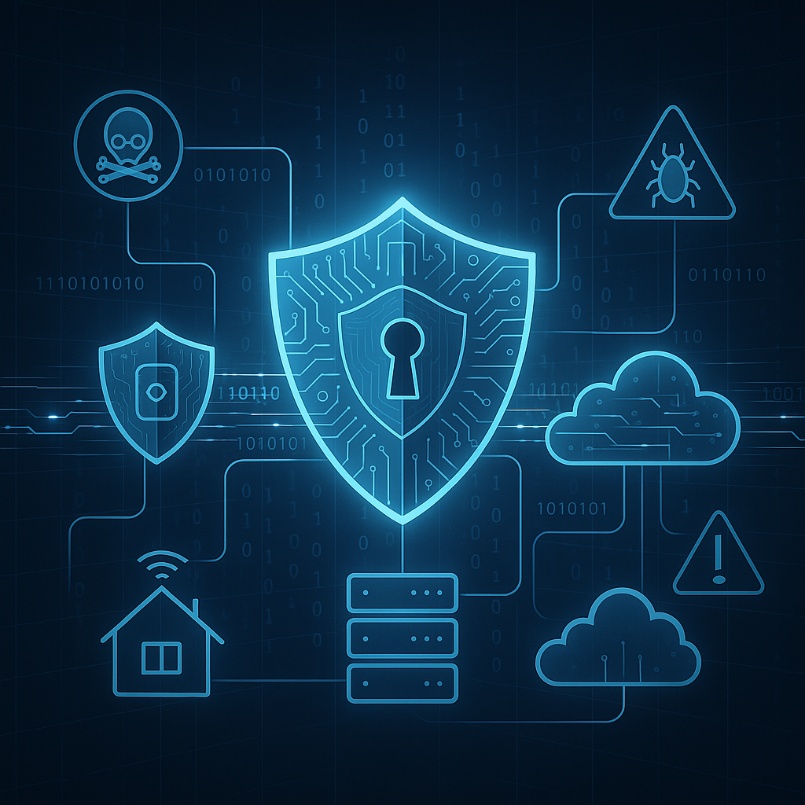In today’s hyperconnected world, the Computing Continuum (CC)—spanning IoT devices, edge computing, and cloud infrastructure—presents both unprecedented opportunities and complex cybersecurity challenges. The CyberNEMO project, funded by the European Union’s Horizon Europe programme, is tackling this head-on with an end-to-end cybersecurity approach that integrates risk analysis, ethics and regulatory governance and compliance.
The recently published deliverable D1.1 outlines the threat and ethics assessment conducted across four critical sectors:
-
Smart energy and water infrastructures
-
Secure media content supply chains
-
Healthcare systems
-
Smart farming and logistics
Each of the four trials serves as a living lab to validate CyberNEMO’s technologies:
-
Smart meters and EV charging stations are protected against ransomware and data breaches using Zero Trust Network Architecture (ZTNA) and AI-based anomaly detection.
-
Media content is securely produced and distributed using microservices, encryption, and federated learning.
-
Hospitals defend against insider threats and phishing attacks while ensuring personal and confidential data sharing in compliance with GDPR and other relevant regulations.
-
Smart farming systems use drones, IoT sensors, and blockchain to ensure traceability and cybersecurity in the olive oil supply chain
These trials demonstrate the scalability and adaptability of CyberNEMO across diverse sectors and regulatory environments
Using the MITRE ATT&CK framework, the project identified 44 unique threat types and over 100 functional and non-functional requirements, as well as 23 ethics and regulatory concerns and corresponding requirements. These threats and challenges range from credential theft and ransomware to data manipulation, ethics of AI and denial-of-service attacks.
At the heart of CyberNEMO is a meta-operating system (meta-OS) that orchestrates secure interactions across the CC. This system integrates:
-
Zero Trust Network Access (ZTNA): Every device, user, and service is treated as untrusted by default.
-
Federated Machine Learning (FML): Enables decentralized threat detection without compromising data privacy.
-
Secure Access Service Edge (SASE): Ensures secure connectivity across heterogeneous networks.
-
Digital Twins and Blockchain: Provide traceability, auditability, and resilience in supply chains
This architecture is designed to be ethics-by-conception, modular, scalable, and interoperable, supporting a wide range of use cases and regulatory contexts
CyberNEMO is not just about technology, it’s about building a secure, ethical, and resilient digital future.
You can explore the official project page on the EU CORDIS portal or follow updates from the coordinating partner Synelixis

